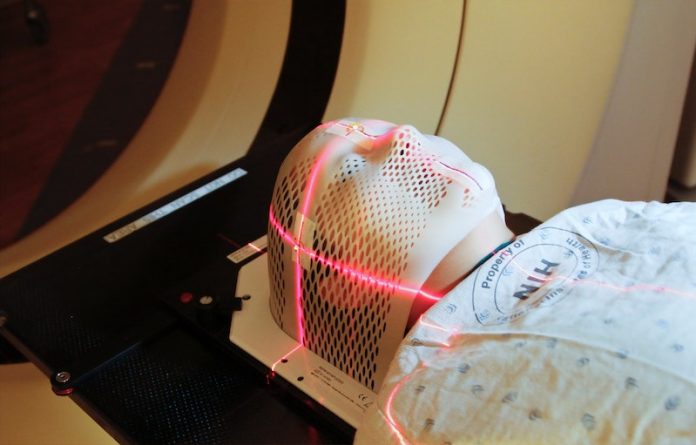
In a study from the University of Waterloo and elsewhere, scientists have created a computational model to predict the growth of deadly brain tumours more accurately.
Glioblastoma multiforme (GBM) is a brain cancer with an average survival rate of only one year.
It is difficult to treat due to its extremely dense core, rapid growth, and location in the brain.
Estimating these tumours’ diffusivity and proliferation rate is useful for clinicians, but that information is hard to predict for an individual patient quickly and accurately.
In the study, researchers analyzed MRI data from multiple GBM sufferers. They used machine learning to fully analyze a patient’s tumour, to better predict cancer progression.
The team analyzed two sets of MRIs from each of five anonymous patients suffering from GBM. The patients underwent extensive MRIs, waited several months, and then received a second set of MRIs.
Because these patients, for undisclosed reasons, chose not to receive any treatment or intervention during this time, their MRIs provided the scientists with a unique opportunity to understand how GBM grows when left unchecked.
The researchers used a deep learning model to turn the MRI data into patient-specific parameter estimates that inform a predictive model for GBM growth.
This technique was applied to patients’ and synthetic tumours, for which the true characteristics were known, enabling them to validate the model.
Now that the scientists have a good model of how GBM grows untreated, their next step is to expand the model to include the effect of treatment on the tumours.
Then the data set would increase from a handful of MRIs to thousands.
Meaney emphasizes that access to MRI data—and partnership between mathematicians and clinicians—can have huge impacts on patients going forward.
If you care about brain health, please read studies about how the Mediterranean diet could protect your brain health, and Vitamin B supplements could help reduce dementia risk.
If you care about cancer, please read studies that a low-carb diet could increase overall cancer risk, and vitamin D supplements could strongly reduce cancer death.
The study was conducted by Cameron Meaney et al and published in the Journal of Theoretical Biology.
Copyright © 2023 Knowridge Science Report. All rights reserved.



